

Vital role of fathers
CHILDWISE
By RUTH LIEW
Dads have a big influence on their children’s development.
I AM going to be a new father in December. Being a hands-on person, I would love to know more about taking care of a newborn and parenting. I want to experience the ups and downs of fatherhood.
I want to take control of this responsibility of being a father. I hope to take pleasure in every moment and be close to my newborn. I want to learn to do the best that I can for my child. – Father-to-be
Being a father is a gradual journey of learning to become familiarised with the demands and joys of a new family role. Many hands-on fathers begin this process early, even before pregnancy.
During pregnancy, fathers-to-be can start by helping out with the housework and showing their support to their expectant wives. Some will read up as much as they can to learn about children and parenting.
Prenatal and parenting classes can enhance fathering skills. It can be helpful to talk to other fathers to seek practical tips on bringing up children.
Studies have shown that fathers who offer their wives strong emotional support during pregnancy can make this adjustment period enjoyable and positive. Babies who are born to supportive fathers tend to be less irritable during the first few days of life.
Fathers have a positive influence on their children’s overall development. Those who are tuned in to their children’s needs, know the right moves and make more appropriate decisions. Fathers tend to be more physical with their children in their play, such as bouncing, tossing, and rocking them.
It is found that fathers who spend time playing with their children can increase their intellectual and physical competency. Children gain from their father’s physical stimulation and their mothers’s verbal interactions.
Fathers can bond more closely with their children when they are involved in care-giving. Changing diapers, feeding and bathing are wonderful moments for fathers to experience the joys of fatherhood.
Research has shown that boys and girls whose fathers played a major role in their care-giving tend to have greater self-control and are more self-determined.
My son is four-and-a-half years old while my daughter is two- and-a-half. They always fight and argue with each other while playing or watching TV.
My daughter likes to take her brother’s toys. They would fight over the same toy. Sometimes my daughter would l hit her brother and vice versa.
They always fight over who gets to watch their favourite programme.
My wife and I have tried to intervene by asking them not to fight but they would not listen to us. Please advise. – Concerned Father
If you stay out of your children’s fights, they will be more ingenious and self-reliant in resolving their disagreements. Do not spend too much time and energy on the negative aspects of your children’s relationships. Whenever there is a negative situation, deal with it as soon as you can and move on to better things.
Focus on what the children can do together rather than what they are not willing to do. You cannot get both children to co-operate when they are set on winning their fight.
When your children fight over watching television, fix a schedule for them to take turns rather than trying to reason with them on how to share.
When one child protests over what the other is getting, listen and reflect on what he/she is feeling. Do not give your opinion or try to change their mind. Just listen without comment.Children need to learn how to co-operate with one another.
Play games with your children that allow them to help one another achieve their goals. Instead of getting the children to compete with one another, let them help each other to collect as many points as possible to win prizes.
Highlight to them that it feels good to work together instead of fighting with one another.
Thursday, June 12, 2008
PARENTING :Vital Role Of Fathers
Subscribe to:
Post Comments (Atom)















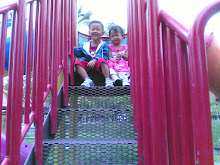.jpg)



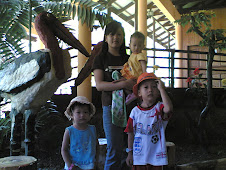.jpg)


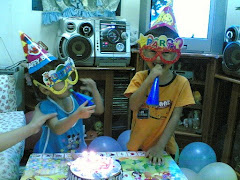a.jpg)

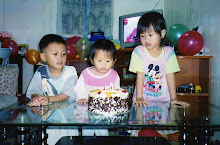
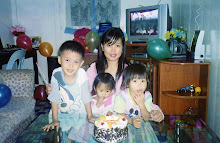
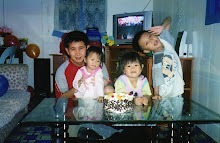

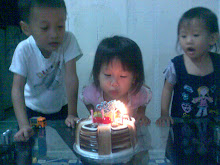





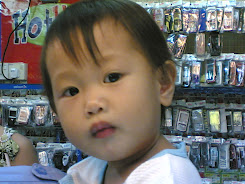.jpg)

.jpg)
.jpg)















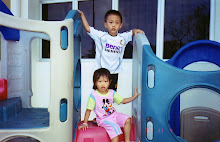
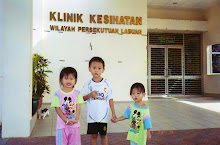


.jpg)
.jpg)






















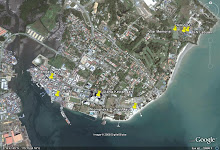


No comments:
Post a Comment